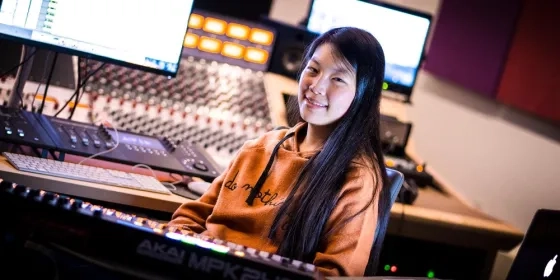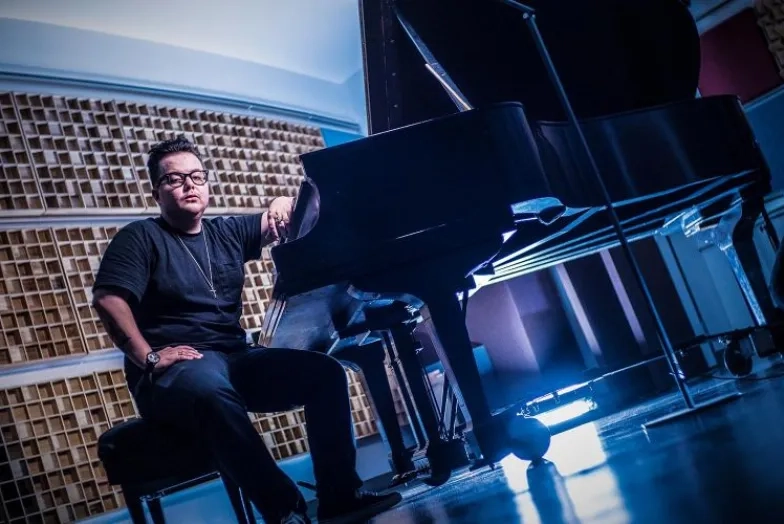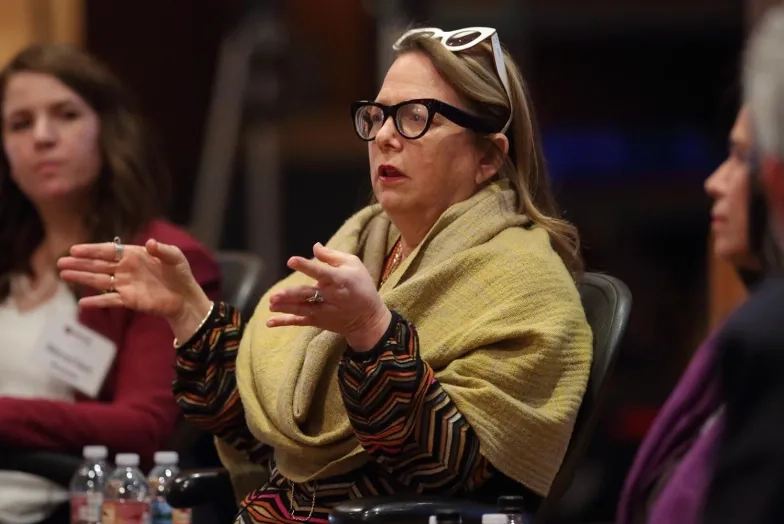Get to Know Jessica Mao ’20
“I remember when I was about to go into middle school I got a letter from the band director telling me I should join the band,” says SFCM student Jessica Mao. “There was a little note that said, ‘If you play piano, you have to pick a different instrument,’ so I decided to pick up the flute.”
It turns out the flute—nor the piano, for that matter—did not end up defining Mao as a young musician. She was part instrumentalist, part composer, and wholly an artist.
Mao, a junior in SFCM’s technology and applied composition (TAC) program, had always been immersed in music growing up. Her father plays the erhu (a Chinese stringed instrument) and her younger sister is a singer focusing on opera and musical theatre. With music running in her family, her adaptability to musical disciplines tends to be seamless.
In addition to her natural talent for the piano, she expressed an inclination for composition early on. Mao began taking composition lessons in high school, something rarely seen in pre-collegiate musical life. (Her instructor was Daniel Wood, SFCM’s composition chair for the Pre-College.)
“I always had this dream of becoming a musician when I grew up. I realized that when I practiced piano, sometimes I would go off on a tangent and make my own melodies. I’d say, ‘I don’t like the way this ends,’ so I’d make up my own ending.”
Fast forward to college application season. Mao was considering her options for attending music school and was informed of a new program at SFCM. Thinking Mao might like to engage in a curriculum designed around media and composition, Wood showed her the webpages highlighting the TAC program on the SFCM website. They specifically called attention to the study of film and video game composition, something right up Mao’s alley.
“I was, like, ‘Sold!’” she remembers.
Mao applied for both TAC and the classical composition program and was admitted to both. Because of her love of video games, TAC was the clear avenue for her. Becoming a video game composer is perhaps her top career ambition.
She finds TAC’s semesterly collaboration with Sony PlayStation one of the most invaluable opportunities as an SFCM student. In the class, PlayStation game designers present students with a brief for the creation of a mock video game. It is the job of the students to come up with their own soundtracks for the game, composing themes for characters and events. At the end of the project, Sony PlayStation’s music staff works with students to record their music live at PlayStation headquarters in San Mateo. It is a priceless addition for any aspiring video game composer’s portfolio.
While participating in the class is a requirement for undergraduate freshmen and those in TAC’s professional studies diploma program, Mao has elected to take it every semester since she came to SFCM.
“I’ve come to learn throughout my time here that I really like writing big, epic music, so my goal is to get recorded at PlayStation every semester. Even though it’s optional for me, I make it a requirement for myself.”
Other opportunities have also sparked Mao’s interest. She has competed in TAC’s KDFC Sound Logo Competition, an annual composition contest that asks participants to create a short sound logo and variations for the Bay Area classical radio station. The on-air identifier is used throughout the year on KDFC. She also got the chance to learn from Austin Wintory, the composer for the award-winning video game Journey, when he was at SFCM. (SFCM presented a live play-through of the game in February 2018.)
And after working on so many projects involving collaborators outside of the Conservatory, Mao has gained an insight into the professional world that few at her age encounter. She is afforded real-world experience with real-world players who can make a difference in her career.
“The TAC program is unique. I would say it’s the only one in the country that offers this kind of curriculum and all these opportunities to work with big names in the industry—not only work with but also get feedback from them. That’s what made it stand out for me.”
Mao is considering going to graduate school after she finishes her undergraduate degree at SFCM. But her natural inclination to champion the TAC program can’t help but be expressed while she’s at SFCM.
“Everyone at SFCM is there to support each other—between departments or within the same department. You could come from a vastly different background from a lot of other students. Here, they really encourage collaboration. You can learn a lot from other students—and teach a lot, too.
“In TAC, it feels like a really big family even though some of us are extremely different. I’m from a classical background, others are from a more producer-focused background. You don’t want to miss out on all the opportunities the faculty find for you.”



